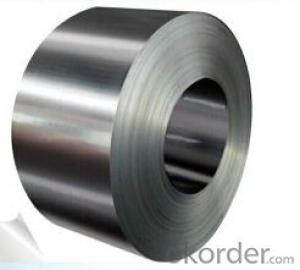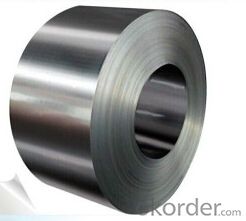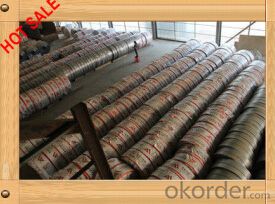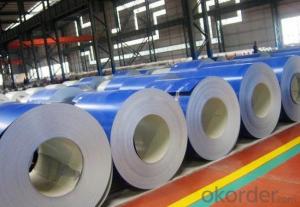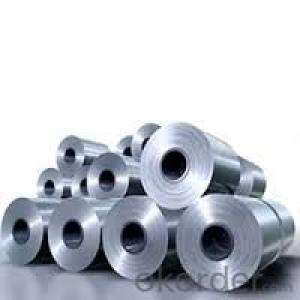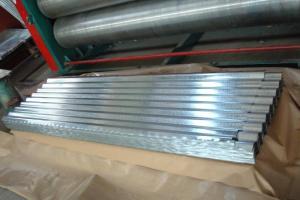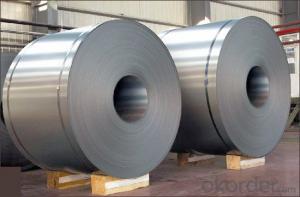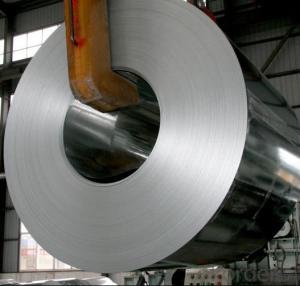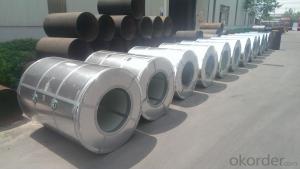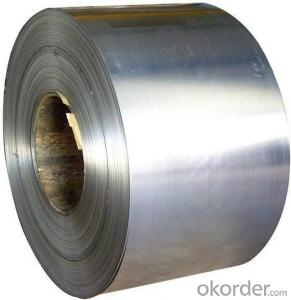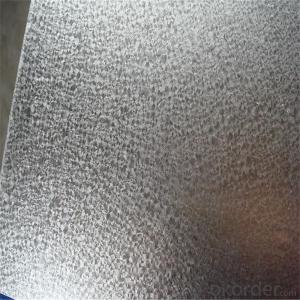Cold Rolled Galvanized Steel Coil/Plate
- Loading Port:
- Shanghai
- Payment Terms:
- TT OR LC
- Min Order Qty:
- 25 m.t.
- Supply Capability:
- 50000 m.t./month
OKorder Service Pledge
OKorder Financial Service
You Might Also Like
cold rolled steel coil description:
Standard:AISI,ASTM,BS,GB,JIS
Grade:SPCC
Thickness:0.15mm-0.8mm
Type:Steel Coil
Technique:Hot Rolled
Surface Treatment:Galvanized
Width:600mm-1250mm
Specifications:
Cold rolled galvanized steel coil/plate
1.Uniform thickness galvanized steel coil
2.Best service
3.high quality low price
Cold rolled galvanized steel coil/plate
1.Uniform thickness galvanized steel coil
2.Best service
3.high quality low price and fast delivery
4.zinc coating:60g-150g/m² or as you request
Appcations of Galvanized steel coil/palte
1.Buildings and constructions: roofing, ceilings, gutters, venting lines, indoor decorations, window frames, etc
2.Electrical appliances: computer shells, washing machines, refrigerators, dehumidifiers, video recorders, water heaters, etc.
3. Agricultural equipments: troughs, feeding tools, agricultural driers, irrigation channels, etc.
4. Vehicle parts: back-seat plates of buses and trucks, conveying systems, oil tanks,etc
FAQ:
Acceptable payment term and way?
T/T,L/C, T/T + L/C, D/P
Acceptable price term
FOB CNF CIF DDU CPT
Do you accept OA payment terms?
Yes, sure, but it normally depending on the order value
Do you have QC team?
Yeah, sure, our QC team is very important, they will keep the qualitycontrol for our products.
What is the validity of your quotation?
Normally 7 days.
What is your advantage?
24 hour quick response /Customer oriented/ Credit foremost/ Top quality Excellent
What is your acceptable payment term?
TT,LC,OA etc
- Q: What are the factors affecting the strength of steel coils?
- There are several factors that can affect the strength of steel coils. 1. Steel Grade: The type and quality of the steel used in the coils plays a significant role in determining their strength. Different steel grades have varying levels of carbon content, alloying elements, and heat treatment processes, which can impact the overall strength and durability of the coils. 2. Manufacturing Process: The way in which the steel coils are manufactured can also affect their strength. Factors such as the temperature and duration of the heat treatment, the rolling and annealing processes, and the level of cold working can all influence the final strength of the coils. 3. Thickness and Width: The thickness and width of the steel coils can affect their strength. Thicker coils tend to be stronger and more resistant to deformation, while wider coils may exhibit variations in strength across their surface. 4. Surface Quality: The condition of the coil's surface, including any imperfections or defects, can influence its strength. Surface defects such as scratches, pits, or corrosion can act as stress concentration points, reducing the overall strength of the coil. 5. Storage and Handling: The way in which the coils are stored and handled can impact their strength. Factors such as exposure to moisture, extreme temperatures, or improper stacking and transportation can lead to deformation or damage, decreasing the strength of the coils. 6. Environmental Conditions: Environmental factors such as humidity, temperature, and exposure to corrosive agents can also affect the strength of steel coils. In harsh environments, the coils may experience accelerated corrosion, leading to a decrease in their strength over time. It is important to consider these factors when selecting and utilizing steel coils to ensure that they meet the required strength specifications for the intended application.
- Q: How do steel coils contribute to the marine vessel construction industry?
- Steel coils are essential components in the marine vessel construction industry as they play a crucial role in the fabrication of various structural elements of ships and boats. These coils are typically made of high-quality steel and are used in a variety of ways to contribute to the construction and performance of marine vessels. Firstly, steel coils are utilized in the construction of the hull, which is the main body of the ship. The hull requires strong and durable materials to withstand the harsh conditions of the sea, including waves, corrosion, and impacts. Steel coils provide the necessary strength and integrity to the hull, ensuring the vessel's structural integrity and safety. Moreover, steel coils are also employed in the fabrication of decks, bulkheads, and other internal structures of marine vessels. These components are crucial for dividing the ship into compartments, providing stability, and supporting various equipment and machinery. Steel coils are known for their excellent tensile strength, which allows them to bear heavy loads and resist deformation, making them ideal for constructing these vital components. Additionally, steel coils are used in the construction of propulsion systems and other mechanical parts of marine vessels. These coils are often shaped and formed into specific components, such as shafts, gears, and propellers, which are critical for the vessel's propulsion and maneuverability. The high strength and durability of steel coils ensure the reliability and efficiency of these mechanical systems, enabling smooth navigation and operation of the vessel. Furthermore, steel coils contribute to the marine vessel construction industry by enhancing the overall safety and longevity of ships and boats. Steel is known for its resistance to corrosion, which is a significant concern in marine environments due to the presence of saltwater. By utilizing steel coils, marine vessels can withstand the corrosive effects of seawater, reducing the need for frequent maintenance and repair. This, in turn, improves the lifespan of the vessel and reduces the risk of accidents or failures at sea. In conclusion, steel coils are indispensable in the marine vessel construction industry. These coils provide the necessary strength, durability, and resistance to corrosion, ensuring the safety, performance, and longevity of ships and boats. From the construction of the hull to the fabrication of internal structures and mechanical components, steel coils play a vital role in every aspect of marine vessel construction.
- Q: I work with stainless steel a lot and I know it's rust resistant but it's definitly not STAIN resistant. You might be able to remove some stains easier from it than you can from some other surfaces but when it does stain, its hard as heck to clean it. It takes forever to scrub stains off my stainless steel pans so maybe it should just be called rustless steel?
- Stainless steel is not suppose to rust! If it does use Barkeepers (its comes in a can like comet but it isn`t) and you can buy it in the same section. It is called Bar Keepers friend. It is especially used on stainless steel.
- Q: How are steel coils used in the production of metal cladding?
- Steel coils are used in the production of metal cladding as a primary raw material. Metal cladding refers to the process of covering a building's exterior with a layer of metal, typically steel, to enhance its durability, aesthetics, and insulation properties. Steel coils serve as the starting point for the manufacturing of metal cladding. These coils are typically made of galvanized steel, which is steel coated with a layer of zinc to protect it from corrosion. The coils are unrolled and fed into a roll-forming machine, where they are shaped into the desired profile for the metal cladding panels. Once the steel coils are formed into the required shape, they undergo various processes to enhance their properties. These processes may include cutting, perforating, and embossing to create patterns, textures, or openings in the cladding panels. The coils can also be coated with additional protective layers, such as paint or powder coating, to provide additional corrosion resistance and aesthetic appeal. The shaped and processed steel coils are then assembled into metal cladding panels. These panels are designed to interlock with each other, creating a seamless and visually appealing exterior for buildings. The panels can be attached to the building's structure using various methods, such as screws, clips, or adhesives. The use of steel coils in metal cladding production offers several advantages. Steel is a strong and durable material, making it suitable for exterior applications that require resistance to weathering, impact, and other environmental factors. Additionally, steel is highly versatile, allowing for a wide range of design options and customization. In conclusion, steel coils play a crucial role in the production of metal cladding. They serve as the raw material, which is shaped, processed, and assembled into panels that provide buildings with enhanced protection, aesthetics, and insulation properties.
- Q: doesnt steel rust?
- Iron mixed with other metals:
- Q: What are the common coil transportation options?
- The common coil transportation options include trucking, rail transportation, and shipping via barges or vessels.
- Q: Hi all.I'm working on a project which requires about 3 steel pipes at 25mm in diametre and about a foot each in length.The qualities I need with the steel is that:1. I need it to be easy enough to weld together2. I need to be able to drill holes through them with a basic drill (I could buy different bits, that's fine)3. I need the steel to be able to take short intense repeated bursts of strain through said holes4. The lighter the steel the better5. Could I please have a ballpark figure for price. I can't imagine such a small amount of steel would cost too muchThank you in advance for your replyRegardsSean
- For a structural product you want tubing instead of pipe. ERW (Electric resistance welded) steel tubing is generally a fairly good compromise between cost and strength. They are available in various wall thicknesses for either lighter weight or greater strength. DOM (dimensioned over mandrel) tubing generally uses a stronger steel allow and is more dimensionally uniform but the cost is much higher. These products are probably available at a local steel supplier. They are both mild steel so they can be arc welded or brazed with ease. Strength of these steel alloys is generally about 70,000 psi so you need to analyze the specific applied stress over the specific surface area to determine what wall thickness you need. If you are applying tension or compression to pins in holes in the tubing, you could braze in hardened steel bushings. You would bore a larger hole in the tubing in which to insert the bushing. Bushings would distribute the force over a significantly larger surface area and the holes will not tend to elongate.
- Q: How are steel coils used in the production of shelving units?
- Steel coils are used in the production of shelving units by being processed and formed into various components such as shelves, brackets, and support beams. These coils are typically cut, bent, and welded to create the necessary shapes and sizes required for the shelving unit. The steel material provides strength and durability to the shelves, ensuring they can hold heavy items and withstand the weight placed on them.
- Q: Can steel coils be stored in unheated warehouses?
- Yes, steel coils can be stored in unheated warehouses. Steel coils are not typically affected by low temperatures, as they are durable and resistant to cold weather conditions. However, it is important to ensure that the warehouse is dry and free from moisture, as prolonged exposure to dampness can cause rust and corrosion on the steel coils.
- Q: What are the advantages of using steel coils in various industries?
- There are several advantages of using steel coils in various industries. Firstly, steel coils are highly durable and have a high strength-to-weight ratio, making them suitable for heavy-duty applications. Secondly, steel coils offer excellent resistance to corrosion, which is crucial in industries exposed to harsh environments or chemicals. Additionally, steel coils can be easily formed and shaped, allowing for flexibility in design and customization. Lastly, steel coils are recyclable, making them an environmentally-friendly choice while reducing waste and promoting sustainability.
Send your message to us
Cold Rolled Galvanized Steel Coil/Plate
- Loading Port:
- Shanghai
- Payment Terms:
- TT OR LC
- Min Order Qty:
- 25 m.t.
- Supply Capability:
- 50000 m.t./month
OKorder Service Pledge
OKorder Financial Service
Similar products
Hot products
Hot Searches
Related keywords
